This year the jury selected not several individual artists but a shortlist of five art collectives. The five participants work closely with their communities to use art as a catalyst for social change: given that for the last two years our lives have been consumed by the coronavirus, it only seems right the jury selected a shortlist of groups who champion a collaborative process by responding to the pandemic in solidarity and reflecting on the importance of community.
Each of the art collectives has gone beyond the Turner Prize, as they go back to the roots of their community, advocating change and beginning (and continuing) to think about how art can change people.
The artists who participated were: Array Collective; Black Obsidian Sound System; Cooking Sections; Gentle/Radical; Project Art Works.
I was mortified when I heard that all five entries were video art. I hate video art. It bores me. I just cannot bear to sit or even worse, stand, and watch a video in a gallery and I always move on when there is a video on show in an art gallery. But, I thought I would give it a go.
I walked into the first room, saw the television screen and walked straight out. I proceeded, walked into an Irish pub and I was hooked.
Array Collective - The Druithaib's Ball:
Array are a collective of artists and activists rooted in Belfast. They create collaborative actions in response to social issues - for example, around language, gender, reproductive rights - affecting themselves, their communities and allies. Array reclain and question traditional identities associated with Northern Ireland in playful ways that merge performance, protest, ancient mythology, photography, installation and video.
We approached through a circle of flag poles, that references ancient Irish ceremonial sites and contemporary structures, which is illuminated by a dawn-to-dusk light.
Through the door we could see
an Irish pub, an imagined sibin (a 'pub without permission') that hosted a film created for the Belfast event. In the dimly light, cozy bar, a video plays an unfolding night of performative fun. The people of Belfast gather to drink and party; one by one, they take to the stage to compete for the title of Diva, some in drag, some in T-shirts and jeans. Songs are sung, stories are told, stand-up routines are played out. Each performer is driven by the same desire: for Belfast to put its past behind and come together.
Array Collective work, the blub says, to complicate religious identities. They do this in among the bar's lifesize dolls, protest posters and comfy niches. One man tells a story of religious homophobia, remembering paranoia about sharing the chalice in church during the 1980s Aids epidemic.
At first, the bar feels deeply traditional but, when you look deeper, it reveals hidden political messages about sexuality and identity. Might this be a gay bar?
A large canopy styled from banners provides a floating roof.
On one wall is a pink poster, depicing a woman in high heels, sat in a wheelchair: 'All sorts of people need abortions', she says in a speech bubble.
A flag is stitched with the word REPEAL.
This was the winner of the Turner Prize. The judges praised the group for addressing social and political issues in Northern Ireland, and for translating their activism into artwork. 'What they deal with is really serious stuff, LGBT issues, feminist perspectives on issues today in a divided society, even a sectarian society... what the jury feels is remarkable is that kind of amazing lightness of touch and play and conviviality and sense of hospitality, and the sense of carnival that they bring to the work'.
Salmon: Traces of Escapees by Cooking Sections:
Cooking Sections address the environmental impact of intensive food production. Established in London in 2013 by Daniel Fernandez Pascual and Alon Schwabe, their work uses food as a lens to observe landscapes in transformation, and as a tool for intervention in those very systems of food production and supply. Using site-responsive installation, performance and film, they explore the overlappping boundaries between art, architecture, ecology and geopolitics.
The installation continues Cooking Sections' questioning of the impact of food habits on climate change, and promotes Climavore (rather than herbivore or carnivore) as a form of eating that adapts to the climate. Originated and based in the Isle of Skye since 2016, the project works with communities towards ocean regeneration, promoting alternative ingredients which improve water quality and cultivate marine habitats.

A new edited film of the whole archive sits within the central structure and a small number of works have been selected for exhibition in collaboration with the Herbert's curational team.

We moved through a darkened space where circles of water were projected on the floor, stepping between these slightly sinister ocean enclosures as we listened to a commentary wax lyrical, yet angry, about how we are modifying nature, remaking species in our capitalist fish farming and corruption of 'human fish relations'. The genetic modifications of the farmed fish were made very clear to us, and the way 'humans are the virus that the salmon can't escape'. It was compelling.
Open-net salmon farms are made of holes, the key structure of these undewater feedlots. Excrement, drugs, synthetic colour, and parasites billow out, polluting the surrounding waters. But even if the nets break, farmed salmon remain captive; they can no longer escape their own modified bodies.
Project Art Works:
Project Art Works collaborates with people who have complex support needs. Their work is at the intersection of art and care, and takes multiple forms. Their studios provide the conditions for a broad range of independent and collaborative practices with neurodivergent artists, who take part on their own terms to produce paintings, drawings, sculptural objects and film. Project Art Works organise events and projects that work towards greater visibility and understanding of neurodiversity in culture.
At the heart of their presentation for Turner Prize 2021 is a constructed space that holds physical and digital archive of over 4,000 works produced by neurodivergent artists and makes over two decades. The archive embodies a visible trace of people who are otherwise hidden in the world.
Many of the works are stacked unseen together in the centre of the exhibition space, a statement, perhaps, of how such art is never properly considered by the wider world.
Jack Denness, Self Portrait, 2015
Albert, Geere, Nouse No. 6/8, 2016
Neville Jermyn, Barbary Ape, 2014
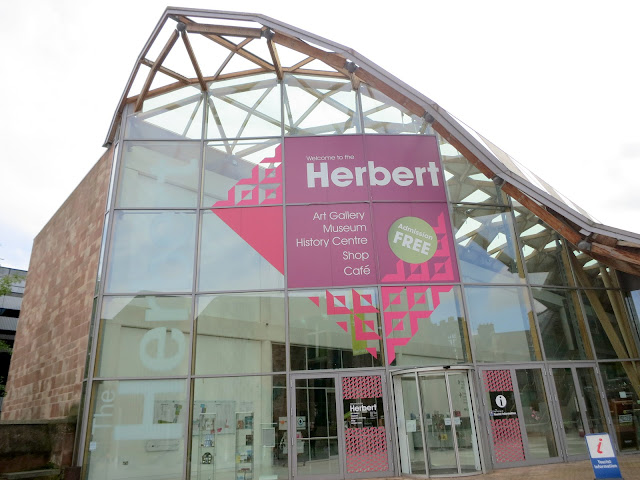







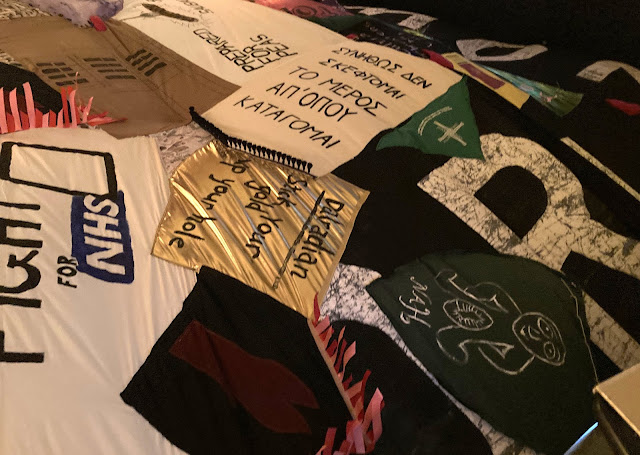
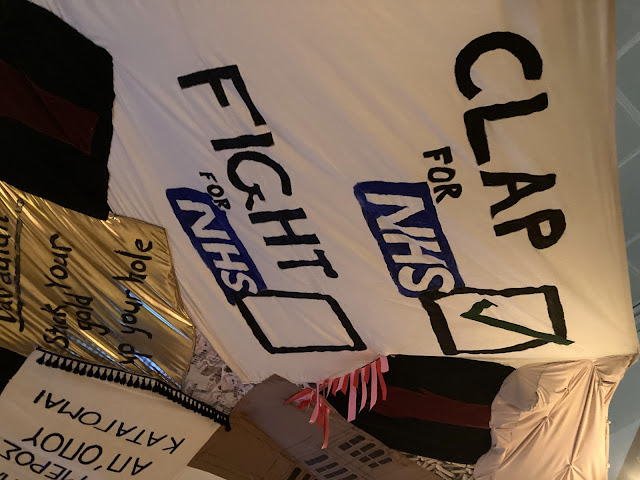




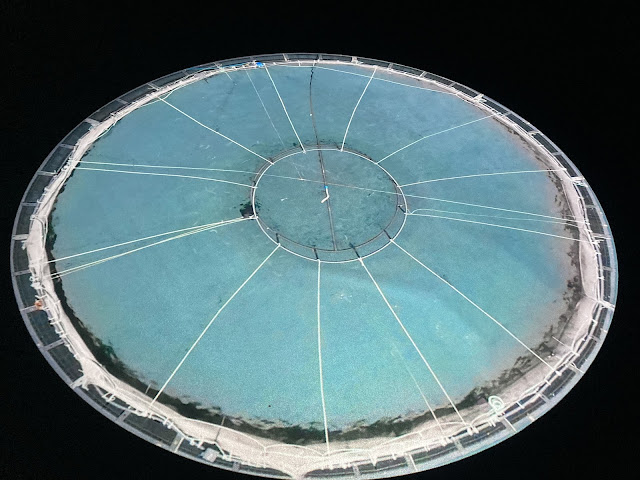
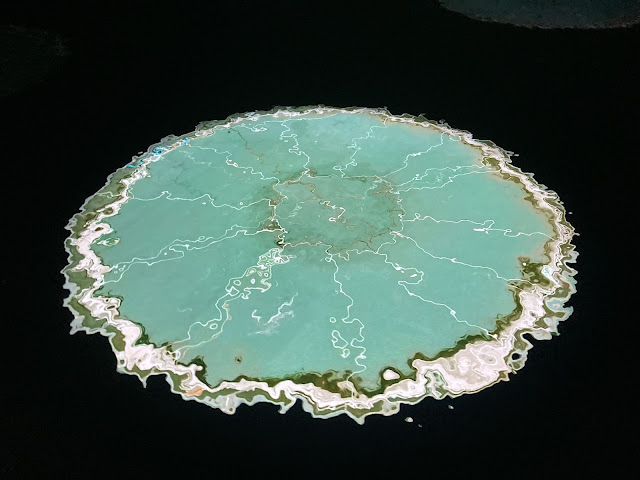


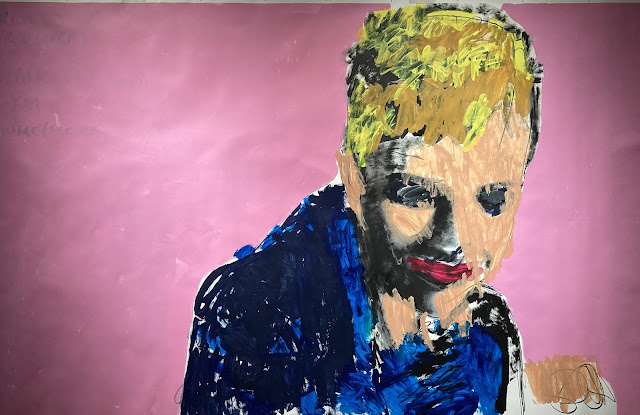

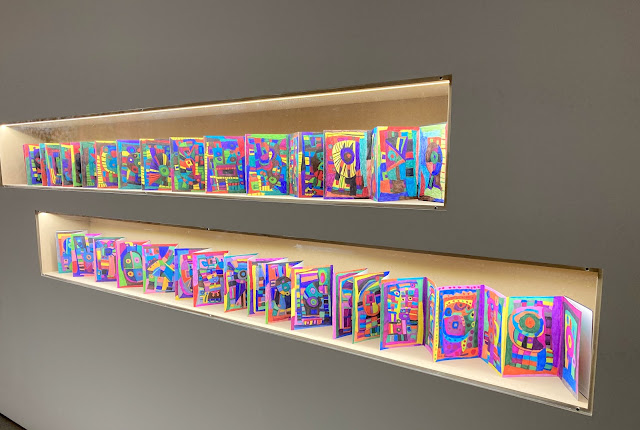
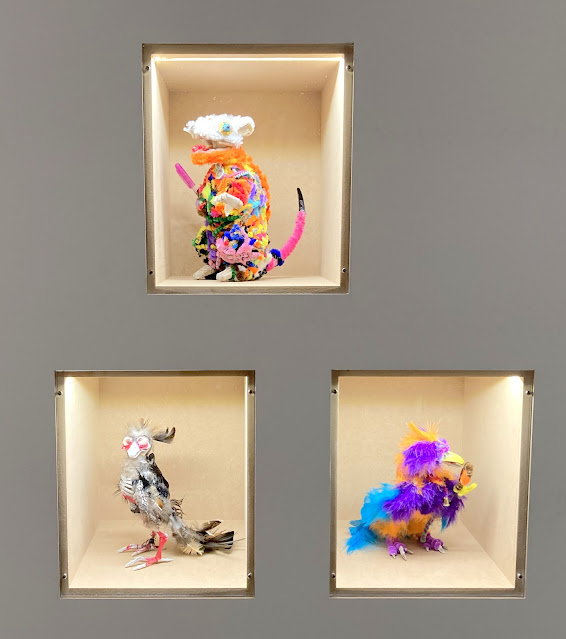


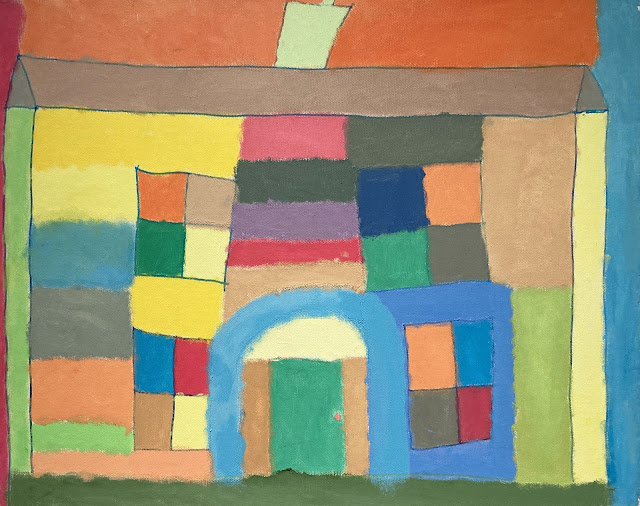
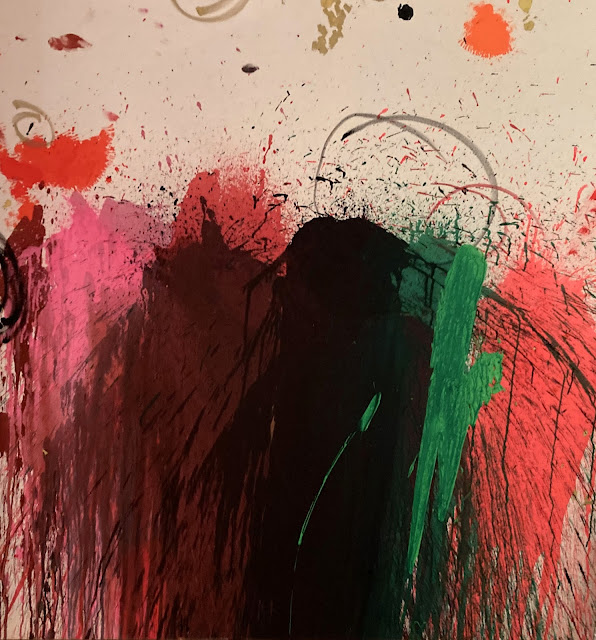
No comments:
Post a Comment